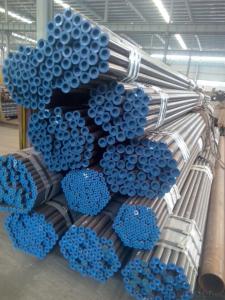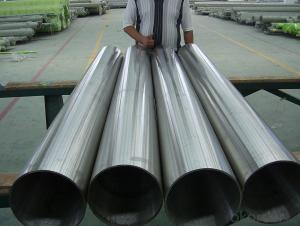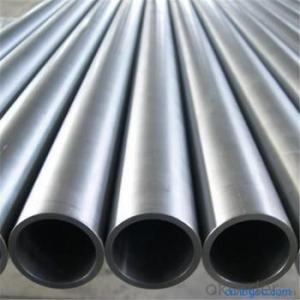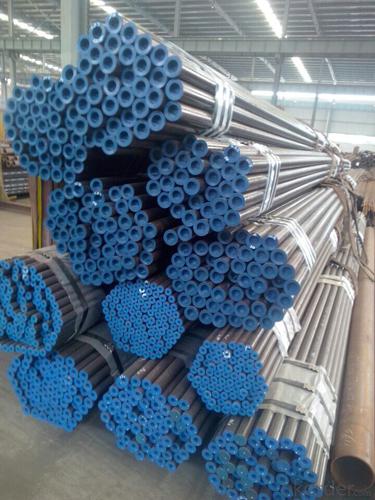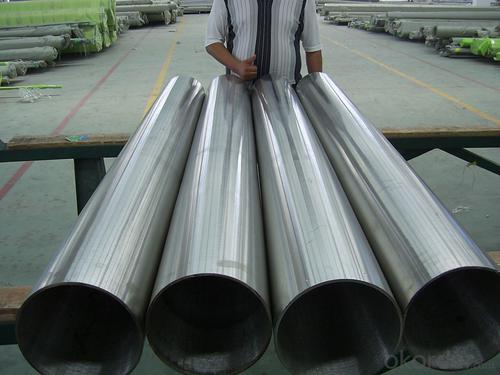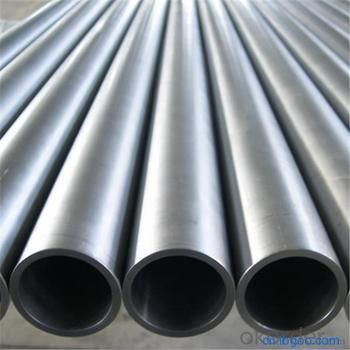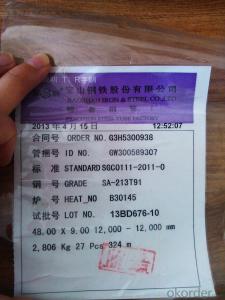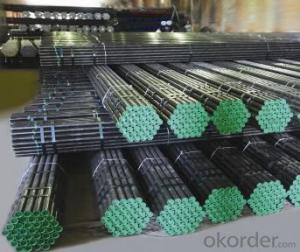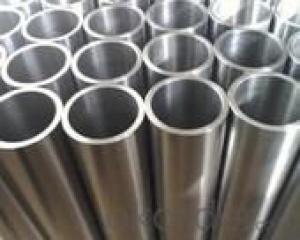ASTM A213 T91 boiler tube 5698
- Loading Port:
- Shanghai
- Payment Terms:
- TT OR LC
- Min Order Qty:
- -
- Supply Capability:
- 30000 kg/month
OKorder Service Pledge
OKorder Financial Service
You Might Also Like
Alloy pipe stock grade A335P11/P22/P12/P91/P92/P9/P5 A213 T11/T22/T12/T91/T91/T9/T5
T91 alloy pipe is America national tree like ridge and America combustion new martensitic heat-resistant steel engineering company metallurgical materials laboratory research work. It is to reduce the carbon content of 9Cr1MoV steel on the basis of the content of sulphur, phosphorus, strictly limit the vanadium, niobium, adding small amount of alloying elements.
The number of K90901 T91 alloy tube
T91 alloy tube
T91 alloy pipe specifications: 8-1240 x 1-200mm
Overview of T91 alloy tube:
T91 alloy tubes for ferrite and Olympic alloy steel seamless steel tube boiler, overheating and heat exchanger belongs to (ASTM A213 / A213M-07a)
Use:
For low and medium pressure boiler (work pressure is generally not more than 5.88Mpa, the operating temperature at 450 DEG C) of the heating surface tube; used for high pressure boiler (work pressure is generally above 9.8Mpa, operate at a temperature of 450 DEG to 650 DEG C between) the heating surface tubes, economizer, superheater, reheater, petrochemical industrial pipe.
Heat treatment of T91 alloy tube:
The final heat of T91 treatment for normalizing and high temperature tempering, normalizing temperature 1040 C, the holding time of not less than 10 min, the tempering temperature is 730 to 780 DEG C, the heat preservation time is not less than 1h, the final heat treatment on Microstructure of tempered martensite
- Q: Can steel pipes be used for brewery installations?
- Yes, steel pipes can be used for brewery installations. Steel pipes are commonly used in breweries for various applications such as transferring liquids, connecting equipment, and supporting structures. They are durable, resistant to corrosion, and can withstand high temperatures and pressures, making them suitable for brewery installations.
- Q: Can steel pipes be used for oil and gas well production?
- Yes, steel pipes can be used for oil and gas well production. Steel pipes are commonly used in the oil and gas industry due to their strength, durability, and resistance to corrosion. They are able to withstand high pressure and extreme temperatures, making them suitable for transporting and extracting oil and gas from wells.
- Q: How do steel pipes compare to other materials in terms of cost?
- Steel pipes are generally more cost-effective than many other materials used for pipes, thanks to their durability, strength, and availability. While initial costs may vary depending on factors like size and grade, steel pipes offer a longer lifespan and require less maintenance compared to other materials, making them a cost-efficient choice in the long run.
- Q: What are the common methods of joining steel pipes?
- The common methods of joining steel pipes include welding, threading, and using mechanical couplings. Welding involves fusing the pipes together using heat, while threading involves screwing the pipes together using threads on the ends. Mechanical couplings are devices that connect the pipes together using compression or other means.
- Q: What are the different types of steel pipe bends for pipeline routing?
- There are several different types of steel pipe bends commonly used for pipeline routing. These include 90-degree bends, 45-degree bends, and custom bends with specific angles as per the pipeline design requirements. Each type of bend serves a specific purpose in redirecting the flow of fluids or gases through the pipeline while maintaining structural integrity.
- Q: How are steel pipes used in the manufacturing of bicycles?
- Steel pipes are commonly used in the manufacturing of bicycles as they provide strength, durability, and rigidity to the frame structure. The pipes are typically used to construct the main frame, handlebars, seat post, and fork, ensuring a sturdy and reliable bicycle.
- Q: What is the difference between the stainless steel pipe welded pipe and seamless pipe?
- Welding performance: chemical composition of seamed pipe and seamless pipe are different. The production of seamless steel components only meets the basic requirements of astm. The production of seamed tube steel containing suitable for chemical composition of welding. For example, the mixing of silicon, sulfur, manganese, oxygen, and a certain proportion of elements such as the triangle ferrite can produce a welding flux which is easy to transfer heat during welding, so as to make the whole weld be welded well. The lack of steel pipe above the chemical components, such as seamless tube, can produce all kinds of unstable factors in the process of welding, welding and welding penetration is not easy.
- Q: How big is the seamless steel tube of DN50?
- DN refers to the nominal diameter, the outer diameter is 60.3mm
- Q: How are steel pipes used in the water supply system?
- Steel pipes are commonly used in the water supply system due to their durability and strength. They are used to transport water from the source, such as a reservoir or water treatment plant, to various distribution points, such as homes, buildings, and industries. Steel pipes are resistant to corrosion and can handle high water pressure, making them ideal for long-distance water transportation. Additionally, steel pipes are often used in underground applications, as they can withstand the weight of soil and other external forces.
- Q: How are steel pipes used in the construction of wind farms?
- Steel pipes are commonly used in the construction of wind farms to support and secure the wind turbines. These pipes serve as the foundation for the turbines, providing stability and structural integrity. They are used to create the tower structure, which supports the nacelle and rotor blades. Additionally, steel pipes are used for transporting and distributing the electrical cables within the wind farm, ensuring efficient transmission of electricity generated by the turbines.
Send your message to us
ASTM A213 T91 boiler tube 5698
- Loading Port:
- Shanghai
- Payment Terms:
- TT OR LC
- Min Order Qty:
- -
- Supply Capability:
- 30000 kg/month
OKorder Service Pledge
OKorder Financial Service
Similar products
Hot products
Hot Searches
Related keywords
